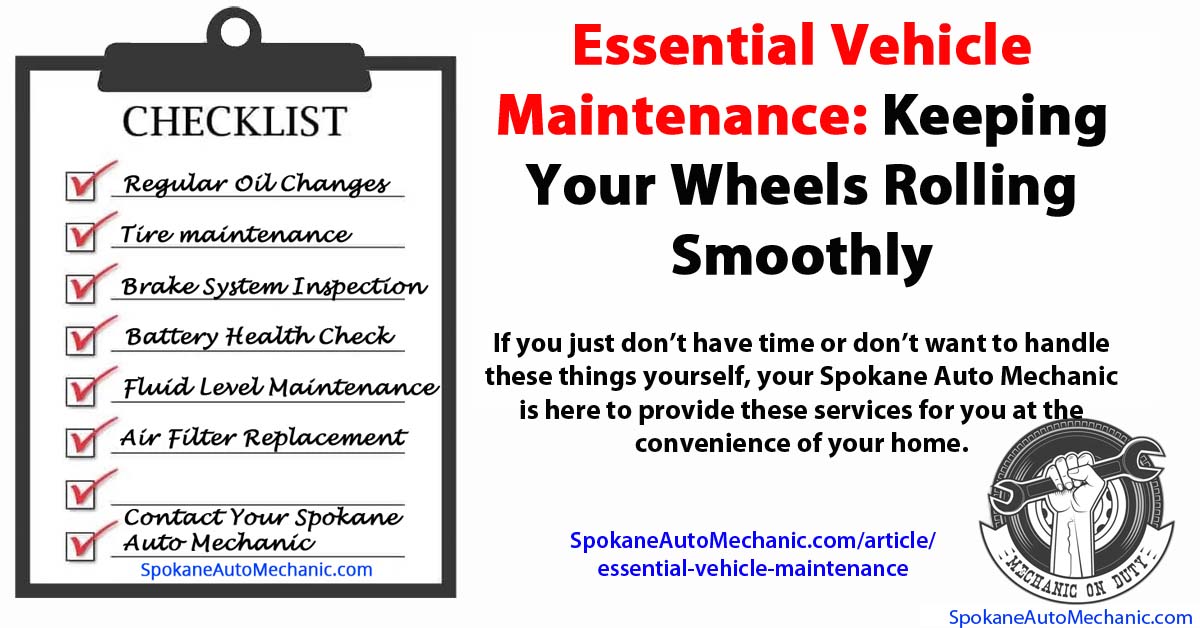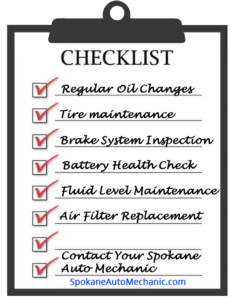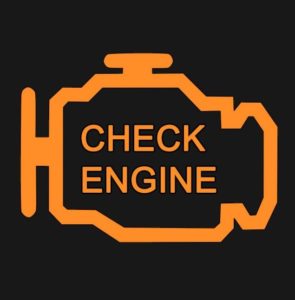Essential Vehicle Maintenance: Keeping Your Wheels Rolling Smoothly
Owning a vehicle comes with the responsibility of regular vehicle maintenance.
Just as we prioritize our health and well-being, our vehicles also require care and attention to ensure they perform optimally and stay on the road for years to come. It's people doing basic and consistent maintenance on their vehicle where they get 200,000 and more miles on their vehicles before any major repairs like engine or transmission rebuilds are necessary.
In this article, we'll highlight some essential vehicle maintenance tasks that every car owner should incorporate into their routine. By following these guidelines, you can enhance safety, reliability, and the overall lifespan of your cherished automobile.
And remember, your Spokane Auto Mechanic is here to provide these services for you at the convenience of your home.
Regular Oil Changes:
Oil is the lifeblood of your engine, lubricating its moving parts and reducing friction. Regular oil changes, as per the manufacturer's recommendations, are vital to keep your engine running smoothly. Fresh, clean oil improves fuel efficiency, prolongs engine life, and reduces the risk of costly repairs.
Don't forget to replace the oil filter as well, as it helps trap contaminants and maintain oil quality.
Tire Maintenance:
Properly maintained tires are essential for safe and efficient driving. Regularly check tire pressure and ensure it matches the manufacturer's recommended levels. Underinflated tires can reduce fuel efficiency and compromise handling, while overinflated tires may lead to uneven wear and reduced traction.
Additionally, inspect tires for signs of wear or damage and rotate them as per the recommended schedule to promote even tread wear.
Brake System Inspections:
Maintaining a reliable braking system is crucial for your safety on the road. Have your brakes inspected regularly, including brake pads, rotors, and brake fluid levels.
Addressing any signs of brake wear, such as squeaking or grinding noises, reduced responsiveness, or a spongy brake pedal, can prevent accidents and costly repairs.
Battery Health Checks:
A dead battery can leave you stranded at the most inconvenient times. Regularly inspect the battery terminals for corrosion and ensure they are clean and securely connected.
If your vehicle's battery is more than a few years old, it's wise to have it tested to assess its overall health. Replacing a worn-out battery proactively can save you from the inconvenience of unexpected breakdowns.
Fluid Level Maintenance:
In addition to oil changes, it's essential to monitor and maintain other fluid levels in your vehicle. This includes...
- coolant,
- transmission
- fluid,
- power steering fluid, and
- windshield washer fluid.
Proper fluid levels ensure the various systems in your vehicle operate smoothly and efficiently, reducing the risk of overheating, component failure, or impaired visibility.
Air Filter Replacement:
A clean air filter allows the engine to breathe freely, promoting optimal fuel combustion and reducing strain on the engine.
Regularly inspect the air filter and replace it as recommended by the vehicle manufacturer. A clogged or dirty air filter restricts airflow and can negatively impact fuel efficiency and engine performance.
The Take-Away From This Article...
Regular vehicle maintenance is not just an option; it's a responsibility for every car owner. By incorporating these essential maintenance tasks into your routine, you can ensure your vehicle remains reliable, efficient, and safe for both you and your passengers.
Remember to consult your vehicle's owner manual for specific maintenance intervals and requirements. By investing time and effort into proper vehicle maintenance, you'll enjoy a smoother and more enjoyable driving experience while safeguarding your investment for the long haul.
Doing the required maintenance is key to get many years out of your vehicle and keeping costs down.
Remember, your Spokane Auto Mechanic is ready to handle these things for you.



